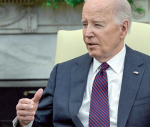You are here
Jordan drops two places on World Press Freedom index
By Mohammad Ghazal - Feb 12,2015 - Last updated at Feb 12,2015
AMMAN — Jordan has dropped two places on the World Press Freedom Index 2015, ranking 143rd among 180 countries, as the government said it will continue to develop media freedom in the Kingdom.
The Reporters Without Borders annual index released Thursday showed that Jordan continued a decline in press freedom, as it was ranked 141st in the 2014 index and 134th in the 2013 index.
At the Arab level, Jordan ranked 11th.
Topping the list of Arab countries on the index was Mauritania (55th globally), followed by Kuwait (90th), Lebanon (98th), Qatar (115), Algeria (119), the United Arab Emirates (120th), Tunisia (126th), Oman (127th), Morocco (138th) and Palestine (140th).
Commenting on the report, Minister of State for Media Affairs and Communications Mohammad Momani said: “We will continue to develop our freedom of expression.”
“We emphasise that freedom of expression goes hand-in-hand with national responsibility and professional, objective and neutral reporting,” the minister, also government spokesperson, told The Jordan Times on Thursday.
The 2015 World Press Freedom Index showed that there was an 8 per cent increase in violations of freedom of information in 180 countries in 2014 compared to 2013.
North Africa and the Middle East contained notable “black holes” in which “entire regions are controlled by non-state groups in which independent information simply does not exist”, Reporters Without Borders said.
The index “ranks the performance of 180 countries according to a range of criteria that include media pluralism and independence, respect for the safety and freedom of journalists, and the legislative, institutional and infrastructural environment in which the media operate”, according to its website.
Finland came in first place, followed by Norway and Denmark, while Eritrea was at the bottom of the list, preceded by North Korea and Turkmenistan, according to the index.
To collect data for the index, Reporters Without Borders sent a questionnaire to partner organisations, correspondents, journalists, researchers, jurists and human rights defenders.
It consisted of 87 questions covering all of problems involved in providing the public with freely reported information, according to the organisation’s website.
“As well as the questionnaire’s qualitative criteria, Reporters Without Borders uses quantitative criteria based on the information obtained from its own monitoring. These criteria aim to measure the level of violence and harassment to which journalists and other information providers were subjected during the period assessed,” it said.
Related Articles
AMMAN — Jordan improved 8 ranks on a world index of freedoms of the press in 2015, as media experts said more efforts are needed to amend se
AMMAN — Jordan was ranked 145th out of 199 countries in Freedom House’s “Freedom of the Press 2016” report, maintaining the same level of la
KHARTOUM — A lively youth-run radio station, Sudan’s 96.0FM was muzzled for 46 days after authorities banished the channel from the airwaves

















